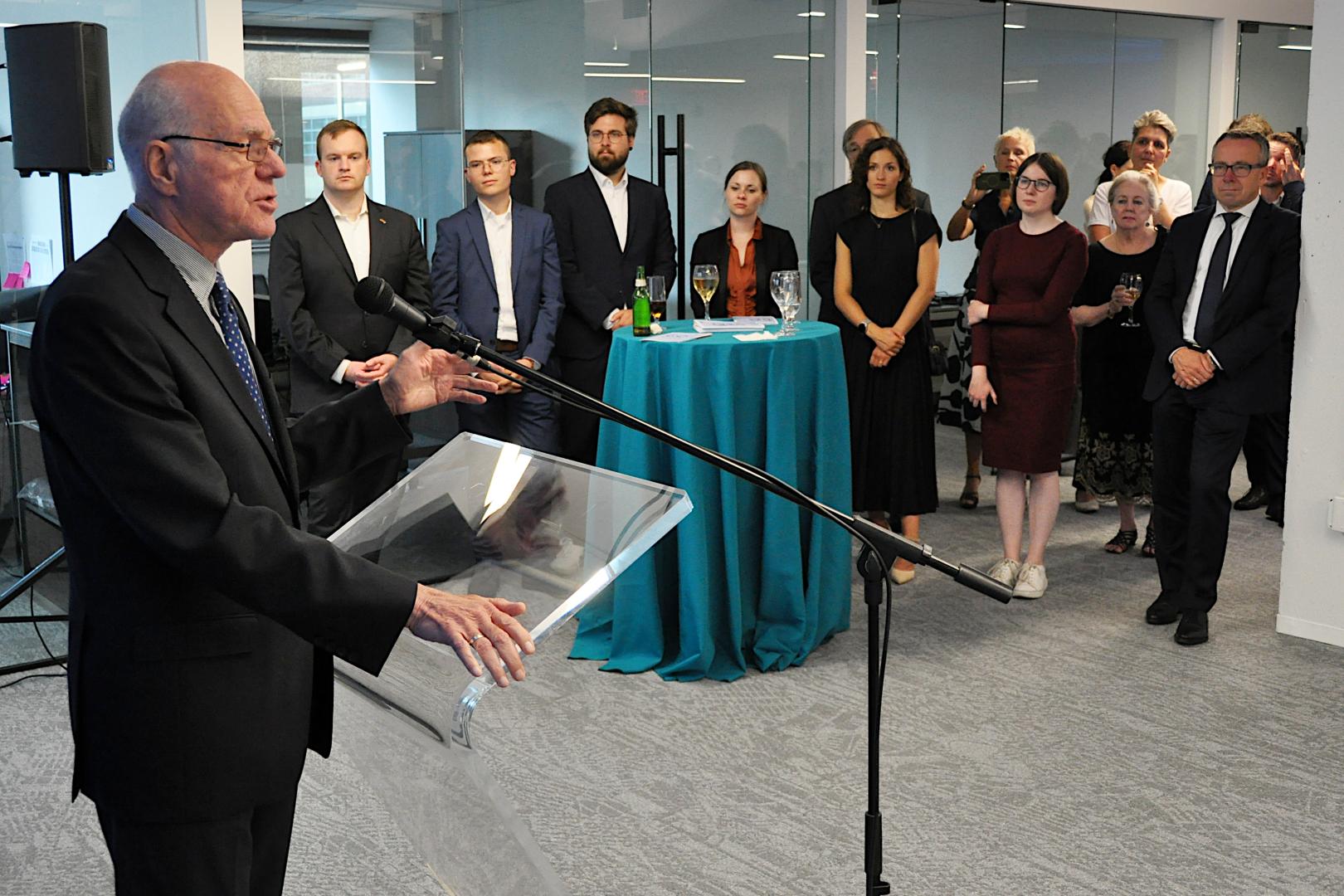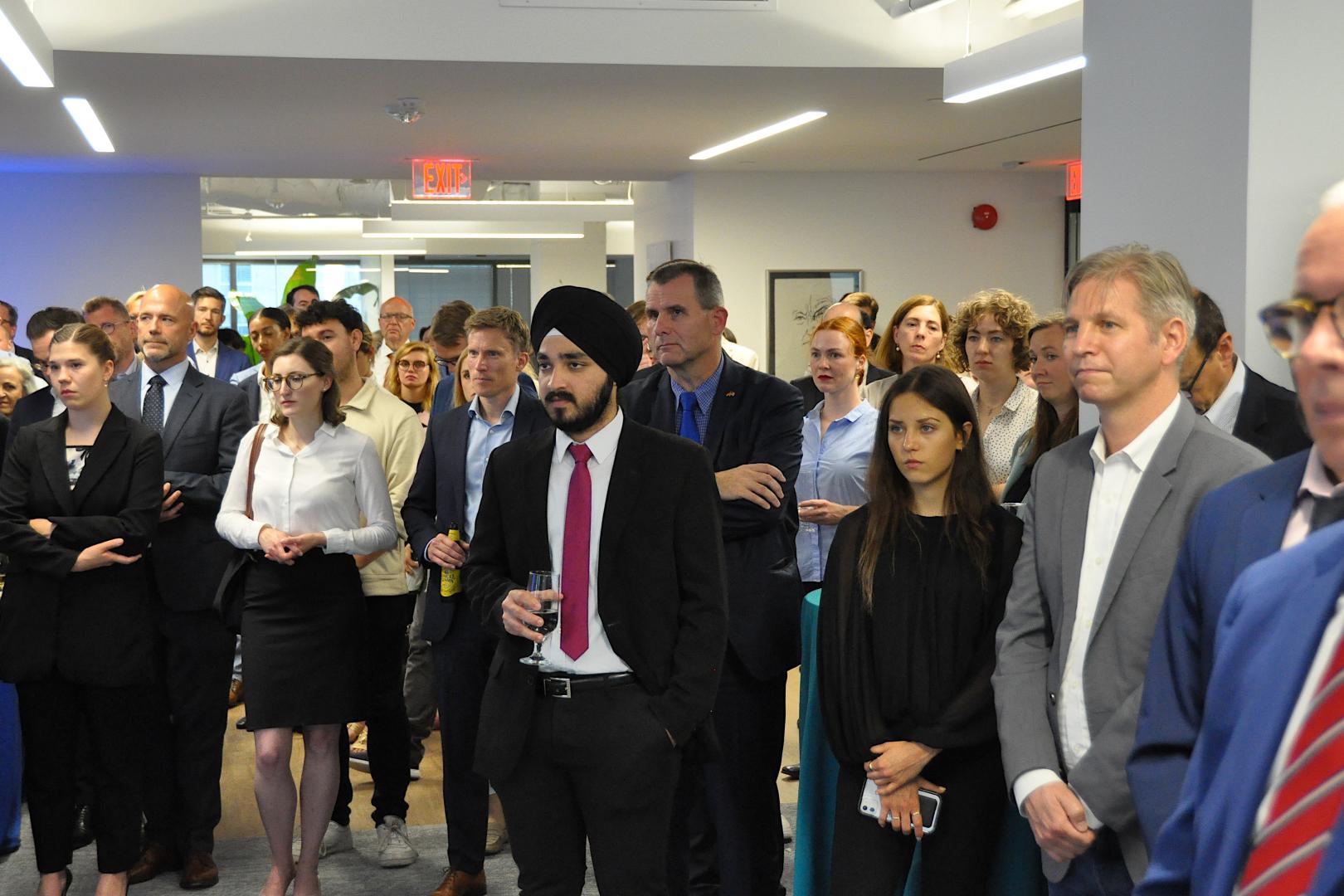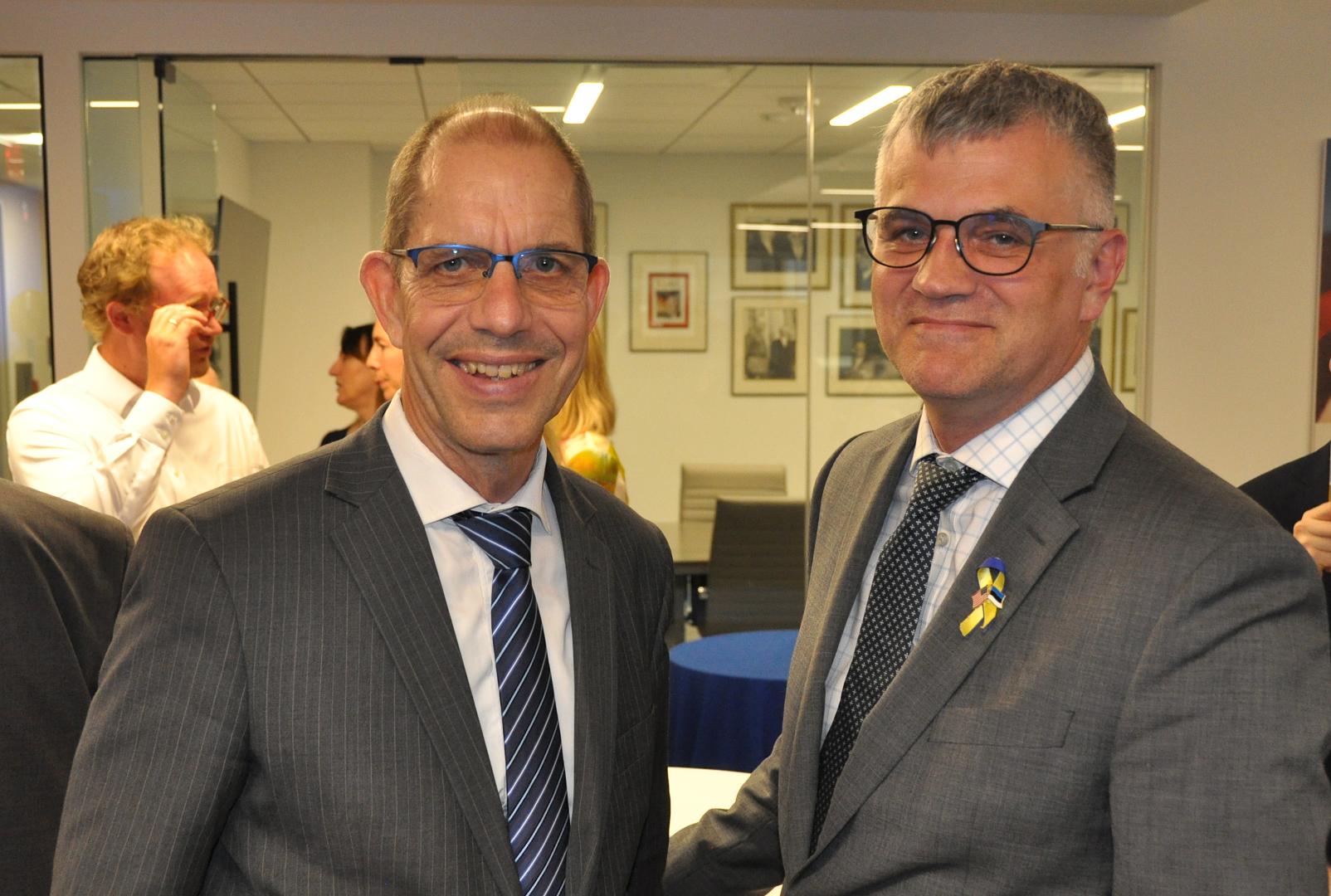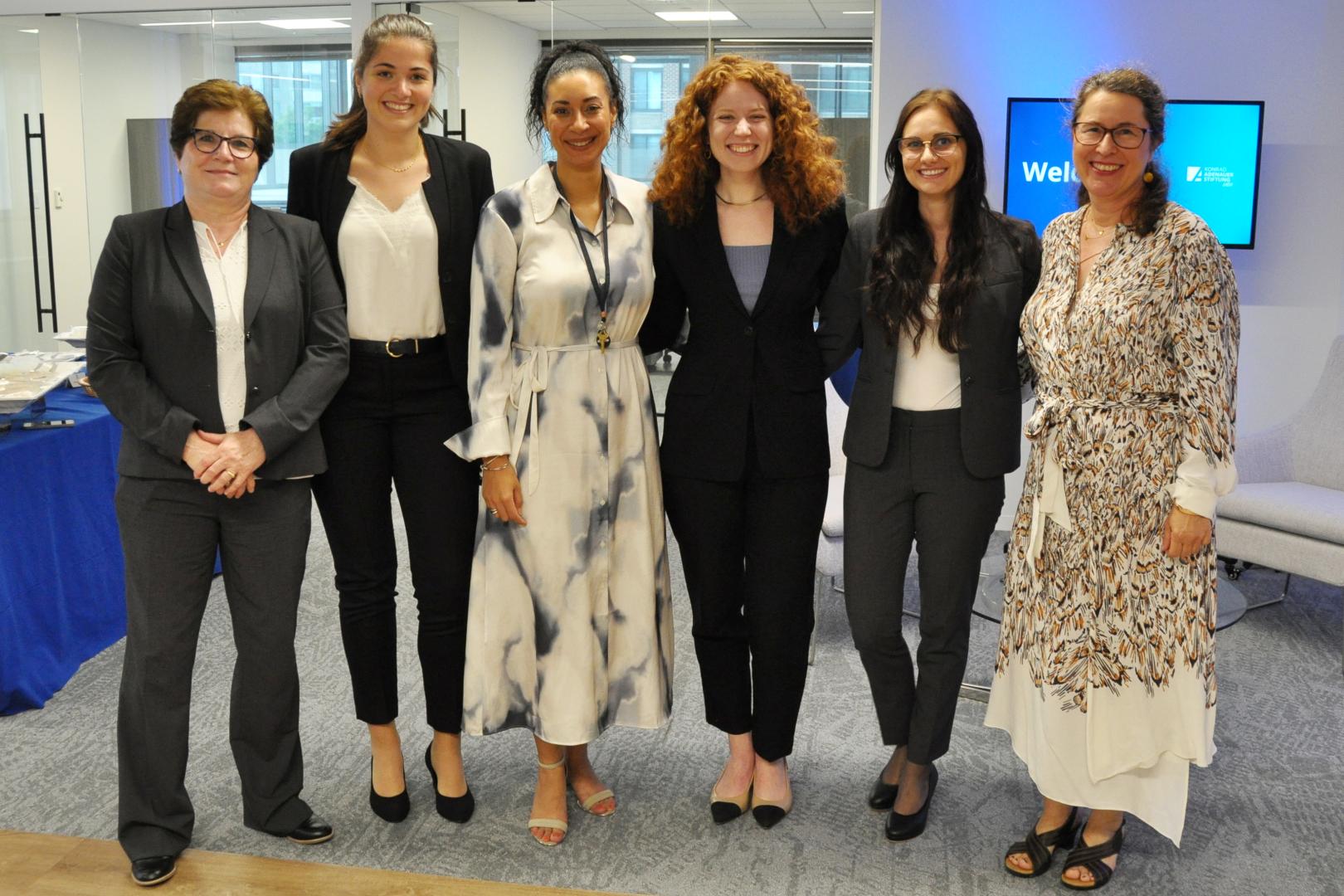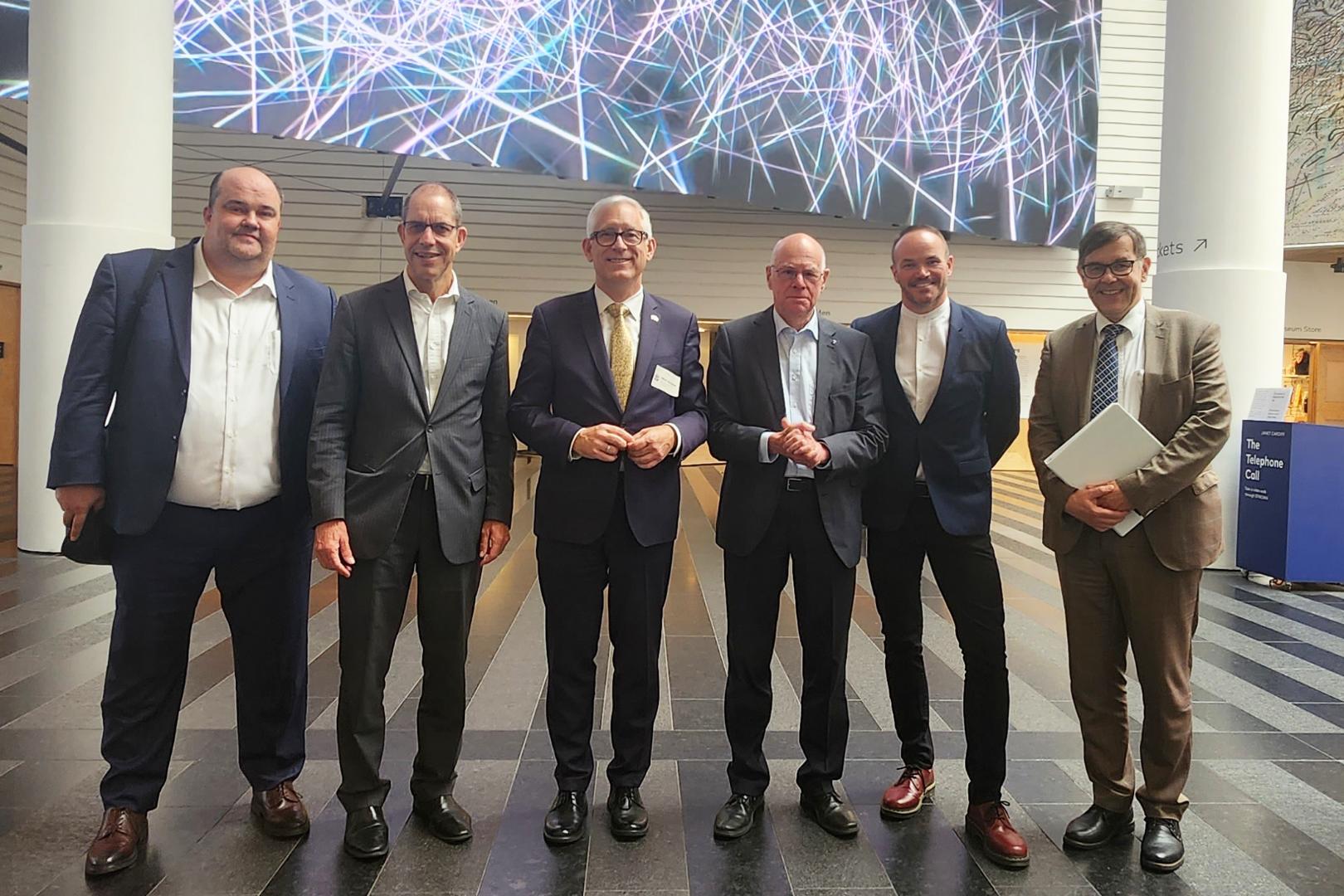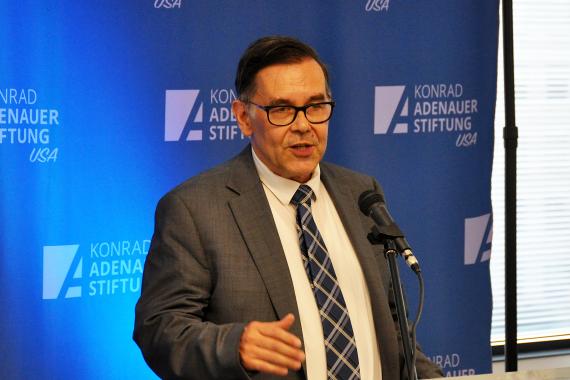The very substantial and closely coordinated efforts by both the United States and Germany to provide military, political and financial support to Ukraine have strengthened transatlantic relations since the outbreak of Russia's war of aggression in a way that has not been seen in a long time. This was one of the key messages during the visiting program, not only at the German Embassy, but also at a roundtable discussion at the U.S. State Department and with Democratic Congresswoman and former Speaker of the House of Representatives Nancy Pelosi. At the same time, the war in Ukraine has focused attention on technological challenges, the effects of which are currently not foreseeable, both in the case of the immediate military conflict as well as for the resilience of democratic structures and institutions. Not only does Ukraine rely on "classic" weapons systems from Western allies and a continuous supply of ammunition for its defense, but it also uses equipment and software from foreign companies for reconnaissance purposes, among other things, whose products were originally developed for civilian applications. Representatives of renowned U.S. think tanks, including the Wilson Center, ITIF, Hudson Institute and Niskanen Center, repeatedly emphasized in Washington how strongly these products and applications now influence warfare. This also applies to attempts to influence public opinion: Ongoing disinformation campaigns in social media are having an increasing impact on the formation of political opinion, according to Hany Farid, professor at Berkeley University. These campaigns can be conducted in an extremely subtle manner by amplifying specific messaging via algorithms to address very narrowly defined user groups. "Deepfakes" are already causing economic damage as well.
The war in Ukraine and the market launch of "ChatGPT" in November of last year have also significantly intensified the political debate about the risks and potential of artificial intelligence. At an evening reception at the KAS office, Ambassador Karen Kornbluh, Managing Director of the "Digital Innovation and Democracy Initiative" at the German Marshall Fund of the United States (GMF), underlined that agreements between the U.S. and its democratic partner countries are imperative for appropriate "guard rails" in the dissemination and use of AI. Close coordination between governments, civil society actors, and private industry would be necessary in determining the appropriate regulations. During the visiting program, several U.S. experts acknowledged the steps taken by the European Union in this regard. In their view, however, common provisions on regulation should not result in a "lowest common denominator" that would, among other things, give the People's Republic of China a competitive advantage internationally in the use of AI. This also applies to the military use of AI. In San Francisco, reference was made in this context to new technological developments in the production of drones that communicate with each other electronically and attack enemy targets "in a swarm.”
San Francisco and the neighboring Silicon Valley continue to play a key role in the commercial development of AI applications in the United States, making them extremely attractive for German investors as well. The advantages and disadvantages of the innovation landscape on the West Coast were discussed in several rounds of talks with Consul General Oliver Schramm and German and U.S. representatives of the private sector. The advantages for German companies and start-ups include access to the large and highly competitive U.S. market as well as the availability of venture capital for larger investments and rapid growth. In comparison, smaller foreign companies in particular benefit from comparatively low regulatory hurdles for settlement and research and development. Universities also invest a great deal of human and financial resources in promoting the spin-off of companies by talented students. However, by no means every German or foreign company is successful on the U.S. West Coast. The biggest challenges include cultural reasons. On the one hand, the market offers an extremely technology-savvy environment and access to the necessary data, especially for the development of new AI applications; at the same time, however, no start-up in the fast-moving Silicon Valley should expect to be able to sustain itself for long with average growth results. "Failure” is considered to be part of the business, as several industry representatives underlined. But, they continued, if you don't want to squander your opportunities, you have to learn to “fail fast” and find a new start.



